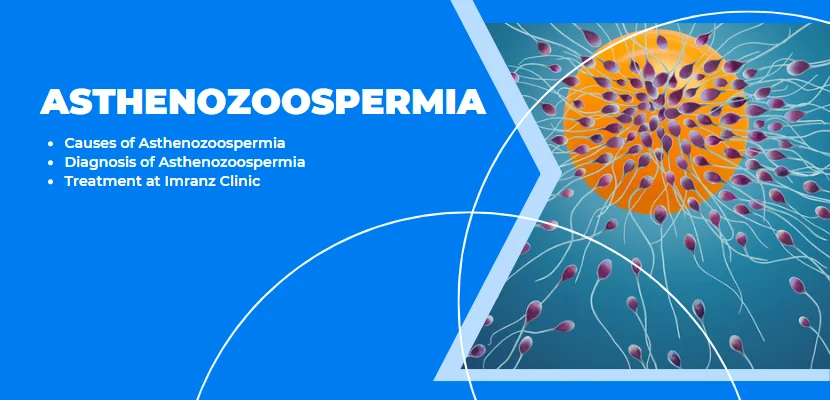Asthenozoospermia Treatment

Causes
Asthenozoospermia can be caused by a variety of factors, including genetics, hormonal imbalances, lifestyle factors, and underlying medical conditions. Some of the most common causes of asthenozoospermia include:
- Genetics: Genetic factors can play a significant role in the development of asthenozoospermia. Men with a family history of the condition are more likely to develop it themselves.
- Hormonal imbalances: Hormonal imbalances can interfere with sperm production and motility, leading to asthenozoospermia. Conditions such as hypogonadism, hyperprolactinemia, and thyroid disorders can all cause hormonal imbalances.
- Lifestyle factors: Certain lifestyle factors can also contribute to the development of asthenozoospermia. These may include smoking, excessive alcohol consumption, drug use, and exposure to environmental toxins.
- Medical conditions: Underlying medical conditions, such as infections, varicocele, and testicular cancer, can all affect sperm production and motility.
Diagnosis
Treatment
The treatment of asthenozoospermia depends on the underlying cause of the condition. In some cases, lifestyle changes such as quitting smoking, reducing alcohol consumption, and avoiding exposure to environmental toxins may be enough to improve sperm motility. In other cases, medications such as hormonal therapies or antibiotics may be prescribed to treat underlying medical conditions. In cases where the cause of the condition cannot be determined, assisted reproductive technologies such as intrauterine insemination (IUI) or in vitro fertilization (IVF) may be recommended.
At Imranz Clinic, our team of fertility specialists is dedicated to helping men overcome asthenozoospermia and achieve their dream of fatherhood. We offer a range of diagnostic and treatment options, including semen analysis, hormonal therapies, and assisted reproductive technologies. With our expertise and personalized approach, we can help you find the solutions you need to improve your fertility and start a family.
Get Treated in 3 Simple Steps!

Book Appointment

Select Doctor


